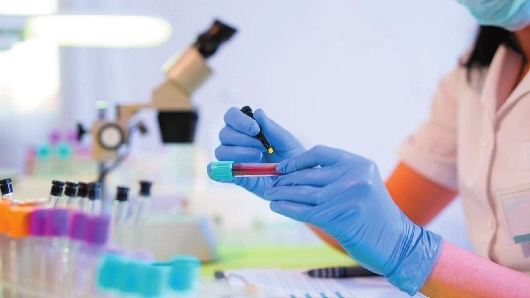
RESEARCHERS in Australia have developed a 10-minute test that can detect the presence of cancer cells anywhere in the human body, according to a newly published study. The test was developed after researchers from the University of Queensland found that cancer forms a unique DNA structure when placed in water. The test works by identifying the presence of that structure, a discovery which could help detect cancer in humans far earlier than current methods, according to the paper published in journal Nature Communications. “Discovering that cancerous DNA molecules formed entirely different 3-D nanostructures from normal circulating DNA was a breakthrough that has enabled an entirely new approach to detect cancer non-invasively in any tissue type including blood,” said Professor Matt Trau in a statement. “This led to the creation of inexpensive and portable detection devices that could eventually be used as a diagnostic tool, possibly with a mobile phone,” he added. Scientists worldwide have been working on ways to identify cancer earlier, as early detection is known to increase the success rate of therapeutic treatment and surgery. Earlier this year, researchers at John Hopkins University in the United States announced they’d developed a blood test, called CancerSEEK, that screens for eight common cancer types. That test identifies the presence of cancer proteins and gene mutations in blood samples. Much more research needs to be done before that test can be widely used, the U.S. researchers added. The 10-minute test developed in Australia is yet to be used on humans, and large clinical trials are needed before it can be used on prospective patients. So far the signs are positive. Tests on more than 200 tissue and blood samples detected cancerous cells with 90 percent accuracy, the researchers said. So far it’s only been used to detect breast, prostate, bowel and lymphoma cancers but they’re confident the results can be replicated with other types of cancer. Cancer alters the DNA of healthy cells, particularly in the distribution of molecules known as methyl groups, and the test detects this altered patterning when placed in a solution such as water. “Using a high-resolution microscope, we saw that cancerous DNA fragments folded into three-dimensional structures in water. These were different from what we saw with normal tissue DNA in the water,” the article explains. The test uses gold particles, which bind with cancer-affected DNA and “can affect molecular behavior in a way that causes visible color changes,” it added. The next step for the team is to stage clinical studies on how early cancer can be detected, and whether the test can be used to gauge the effectiveness of treatment.(SD-Agencies) | 
